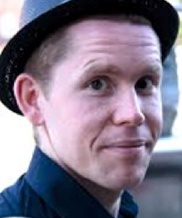Office Playgrounds: Can Freedom Be Programmed?
Interactive media and games increasingly pervade and shape our society. In addition to their dominant roles in entertainment, videogames play growing roles in education, arts, science and health. These talks bring together a diverse set of experts to provide interdisciplinary perspectives on these media regarding their history, technologies, scholarly research, industry, artistic value and potential future. As the speakers and title suggest, the series also provides a topical lens for the diverse aspects of our lives.
Join us every TUESDAY From March 29th until May 31st from 12pm-1pm in the Braun Lecture Hall inside of the Seeley G. Mudd Chemistry Building.
Can’t make it to the talk, but have a question for Sebastian? Submit your question HERE and it will be asked. By submitting your question, you’re allowing mediaX to use and record your submission.
Also listed as one-unit course BIOE196. For more information contact Ingmar@stanford.edu
Never Miss An Event; Join Our Email Community
Presenter

Sebastian Deterding, Office Playgrounds: Can Freedom Be Programmed? At least since the first new economy, playful design has invaded the working world. Today, the offices of startups, digital agencies, and web companies like Google often look more like playgrounds than work spaces. According to a recent survey in the UK, 80% of managers believe that playful office spaces can motivate employees. On closer look, however, their playfulness often bottoms out in bright colors, round shapes -- and the proverbial slide. This talk asks what it might mean to make work environments truly playful, what effects it has on well-being -- and whether we can make people play.
Sebastian Deterding is a deisgner and researcher working on playful and motivational design for human flourishing. He is a reader at the Digital Creativity Hub at the University of York. Founder and principal designer of the design agency coding conduct, he has created engaging experiences touching millions of users for clients including the BBC, BMW, Deutsche Telekom, and KLM. He has keynoted and presented at venues including Lift, GDC, Games Learning Society, Google, IDEO, Playful, and Web Directions, and has been featured on TED. He is founder of the Gamification Research Network, and co-editor of The Gameful World (MIT Press, 2015). He lives online at codingconduct.cc.